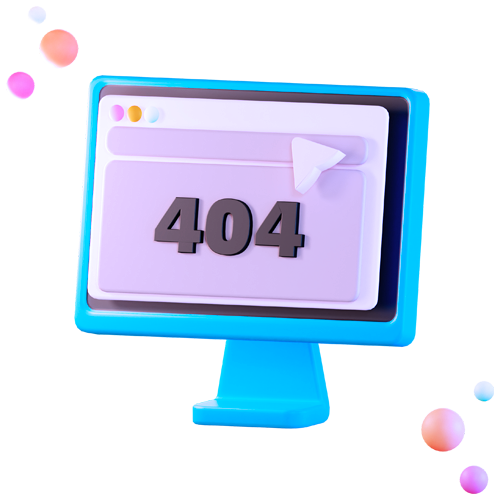SEO 101: Search Engine Optimisation Basics
This blog post is an intro to the basics of SEO, from what it is, to why it’s important to your business, and importantly, things to avoid when optimising your own content.
By the end of this guide you should have a better understanding of how SEO can help your business, and what you can do to start growing your online traffic.
Let’s get started!
What is SEO?
SEO stands for “search engine optimisation.” It’s the practice of increasing your search ranking (and traffic to your website) through non-paid methods.
Effective SEO helps you boost your rankings higher in what’s called “organic” search results.
See the below image for the search results for “office furniture brisbane”
The red box highlights a paid ad. While the green box highlights the highest ranked organic search result.
There’s two main factors that come into play when determining how high your site ranks in organic search results.
Firstly, your content needs to be relevant to the users search intent. Google likes to display the most useful content to its users, so having highly relevant keywords to what your audience is looking for is vitally important.
Secondly, you need to organise and display your content in a way that makes it easy for Google – or any search engine you’re optimising for – to index and rank that content. This helps Google determine that it’s your content it should display above others.
How search engines work
Search engines scan the internet for content and categorise it in order to determine what to display to people when they type in a search query.
Every web page on the internet is catalogued by a process known as “crawling and indexing.” Google then uses thousands of factors to determine what best to display in response to your search query.
The exact algorithm they use to determine search results is kept a secret, but there are best practices we know that can improve your search results.
The key to remember is that the quality of your content in relation to the search query determines how high you’ll rank in organic search results.
Why SEO is important
As mentioned above, search engine optimisation is a way to increase traffic to your website through non-paid means.
Most businesses jump at the thought of increasing their website traffic for free. But that doesn’t mean it’s easy.
A lot of work goes into effective search engine optimisation. But the payoffs can be huge.
While paid advertising can quickly increase the amount of traffic that comes to your website, it’s limited to how much you continue to spend.
When you turn off paid advertising, your traffic will stop too.
With effective search engine optimisation on the other hand, you can build a steady stream of highly engaged, sustainable, and free traffic that continues to pay dividends for years to come.
In short, SEO is a long game. It takes a little more time to set up than paid ads. But it will bring in more traffic over the long term for the amount of time and money invested into it.
White hat vs black hat SEO tactics
There’s multiple ways to drive traffic to your website through SEO, some faster than others, and some better for the long term.
Think about Google’s main priority when displaying search results first…
They want to display the BEST content that can genuinely help people answer their queries.
Highly relevant content, with quality links and pictures, that reads well will always be favoured by Google.
Optimising your content within these parameters so users have the best chance of finding it is what’s referred to as “white hat SEO.”
White hat SEO works within Google’s rules and benefits from them indexing and ranking your content as quality material that’s relevant to readers.
The flip side of this coin is what’s referred to as “black hat SEO.”
Black hat SEO has the potential to bring traffic to your site quickly, but it does this in a way designed to “game” the search engines.
This is achieved by spammy links from other content and sites that aren’t relevant, duplicating content to artificially inflate the amount of perceived content on your site, and stuffing content with keywords to the point where it is hard to read by the average human.
These tactics might give you a quick boost in the search engine rankings, but they are frowned upon by Google.
And you can bet that when Google figures out what you’re doing, you’ll be penalised by getting pushed down the search rankings, which is sometimes impossible to recover from.
Google SEO guidelines
Here we’ll share some best practices for optimising your content for Google.
The main thing to keep in mind when optimising your content is don’t try to trick Google. Focus on your user experience and work within the guidelines provided by Google.
They even provide a handy Search Engine Optimisation Starter Guide here.
Best practices for Google
- Build your page for the user experience first, then optimise for search engines.
- Be crystal clear about what users are reading and where the links they are clicking on lead to. Don’t try to trick them.
- Avoid tactics that are solely intended to improve your search rankings like keyword stuffing.
- Do research on what people are searching for and create quality content based on that research.
- Try to offer the most valuable and engaging content you can compared to your competition.
SEO tactics to avoid
- Automatically generated content by programs designed to manipulate search results.
- Stitching or combining content from different websites without adding anything new.
- Link schemes designed to pump out high quantities of backlinks directed to your site.
- Showing search engine crawlers different content than visitors (referred to in the industry as “cloaking”).
- Hiding text and links on your web pages that Google can read but your users cannot.
Should I hire an SEO agency?
There are many things you can do yourself and plan for when creating your own content.
From determining what the user experience on your site is, to creating engaging content.
But search engine optimisation has a lot of moving parts, and should be considered an important strategy to get right.
If you have neither the time or inclination to learn all the rules yourself, a SEO agency can definitely help.
Specialist agencies will not only know the best practices to move you to the top of search rankings today, but they’ll be on top of changes that happen in industry tomorrow too.
So if something stops working all of a sudden, they’ll be able to adapt and change your strategy to something better.
When considering a SEO agency, you should look at what they’re results have been like in the past.
See if they have worked with any companies in your industry or area, and determine if they have experience in getting results for a business like yours. Check out our SEO management.
Conclusion
That concludes our intro to the basic principles of SEO. We hope you have a better understanding of how search engines work, why SEO is important for your business, and how to optimise your content.
Keep an eye on the blog over the next few weeks as we’ll continue to dig further into more advanced tactics and strategies of SEO such as on-page and off-page SEO, link building, and more specific tips for small businesses.
While you’re here, did you know that Yes Digital, help customise and execute search engine optimisation strategies for our clients?
If you want to see how SEO can help you grow your online business, get in touch for a free no-obligation Strategy Session today.
Speak With An SEO Expert At Yes Digital Today
Here at Yes Digital, we help create and optimise highly targeted SEO strategies for our clients. If you want to see how SEO can help you grow your business, get in touch for a free no-obligation Strategy Session today.
Related Posts
4 Keys to Improving Your Businesses Social Branding
People are spending more and spending more time online. Understanding why and how people are navigtig the internet is crucial to improving your branding. More and more brands are moving online. Plus, consumer wants and needs have changed too. It's important to...
Google Ads Updates and Opportunities for 2021
Google Ads Updates and Opportunities for 2021 With the end of the year only weeks away, we want to touch on some of the latest Google Ads updates and explain how you can utilise them. From free COVID resources to better reporting abilities, it’s clear Google is...
How To Optimise Your Images For Search Engines
How To Optimise Your Images For Search Engines You’ve probably heard the saying that a picture is worth a thousand words. But not all images are used to their full potential on the web. Pictures should indeed form a vital part of your online content strategy. But just...


















